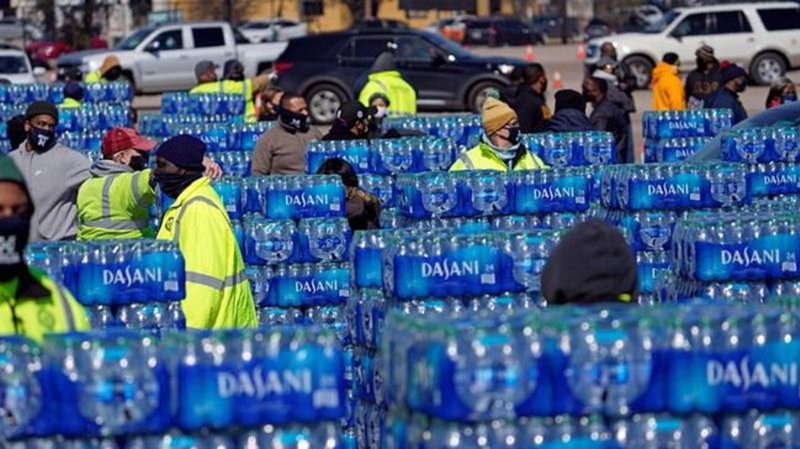
Southern cities hit hard by storms face new crisis: No water
AUSTIN, Texas — Southern cities slammed by winter storms that left millions without power for days have traded one crisis for another: Busted water pipes ruptured by record-low temperatures have created a shortage of clean drinking water, shut down the Memphis airport on Friday and left hospitals struggling to maintain sanitary conditions.
Texas authorities ordered 7 million people — a quarter of the population in the nation’s second-largest state — to boil tap water before drinking it because low water pressure could have allowed bacteria to seep into the system. A man died at an Abilene health care facility when a lack of water pressure made medical treatment impossible.
About 260,000 homes and businesses in Tennessee’s largest county, which includes Memphis, were told to boil water because of water main ruptures and problems at pumping stations. Restaurants that can’t do so or don’t have bottled water were ordered to close. And water pressure problems prompted Memphis International Airport to cancel all incoming and outgoing Friday flights.
In Jackson, Mississippi, most of the city of about 161,000 had no running water. Crews pumped water to refill city tanks but faced a shortage of chemicals for treatment because icy roads made it difficult for distributors to deliver them, Mayor Chokwe Antar Lumumba said.


